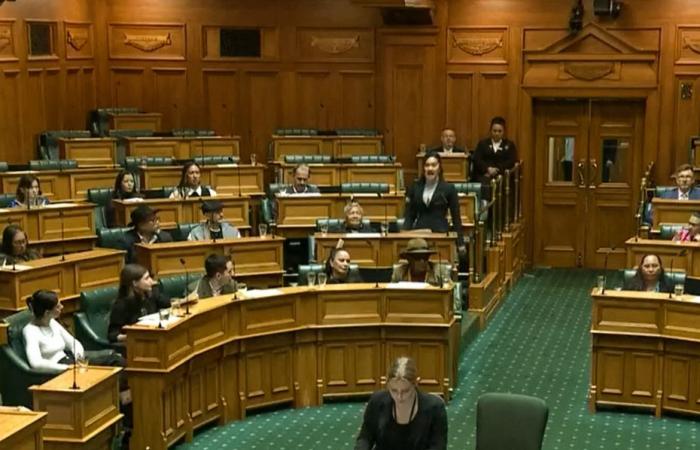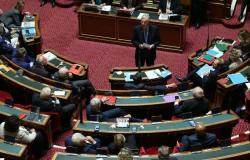The episode of Thursday, November 14, 2024 in Wellington, within the New Zealand parliament, went around the world. It highlights the controversy caused by the bill on the principles of the Treaty of Waitangi, the founding act of the country.
Reinterpreting “Te tiriti o Waitangi” is the meaning of the text at the heart of this parliamentary episode. The treaty considered to be the founding act of the New Zealand nation was signed on February 6, 1840, to establish peace between Maori chiefs and European settlers. However, the liberal party ACT New Zealand, which belongs to the government coalition, has proposed legislation to redefine the principles of the document established almost two centuries ago.
This Thursday, November 14, the “treaty principles bill” (this is the name of this bill) is the subject of a first examination in parliament, in Wellington. Hana-Rawhiti Maipi-Clarke is called upon to vote on behalf of the Maori Party. The 22-year-old MP stands up, announces six votes against… then begins a “Ka mate haka” by tearing the text in two.
Other members of her movement join her in this very symbolic dance, since it is traditionally intended to impress one's adversaries during conflicts. And of course famous all over the world, notably thanks to All Blacks matches.
Clearly annoyed, the speaker of parliament, Gerry Brownlee, evacuated the spectators from the public gallery and briefly interrupted the debates. He censors Hana-Rawhiti Maipi-Clarke, calling the scene“appallingly disrespectful” et “grossly disordered”. The young MP will be suspended, banned from voting or entering the debate room for twenty-four hours. His salary will also be reduced.
This illustrates the tensions around the “treaty principles bill”. Critics of the law say it would have the effect of dismantling programs, including education, intended for Māori citizens. The proposal is unlikely to pass, even though it was adopted on first reading on Thursday, not being supported within the government coalition itself. At any rate, Critics say it risks further poisoning relations between communities.
Thousands of residents joined a march across the country to protest the project, blocking highways on their way to the capital. The protesters, estimated to number around ten thousand, are expected to arrive in Wellington early next week.






